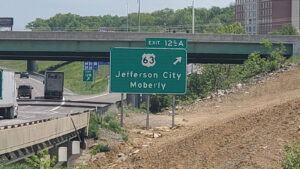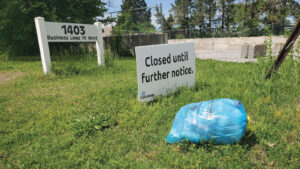The ‘clouded’ real estate title picture in Columbia is difficult to quantify.
A family or individual who has been paying the property tax and insurance on a home will be surprised — and disappointed — when they try to qualify for a home improvement grant, or if they decide to sell the home, only to discover they have no proof of home ownership.
It’s called a “tangled title,” where the name on the official record of ownership, or the deed certified in the recorder of deeds office, may not reflect the actual current owner of the property. That typically happens when the homeowner of record dies without leaving a will to spell out who gets which assets. While those questions can be resolved through the probate process, those steps are lengthy and not always satisfactory for those living in the house, especially if additional family members and possible heirs are identified via probate proceedings.
And that also means the property cannot easily be passed along to other family members or the next generation in what is known as “generational wealth,” and that scenario happens more frequently to minorities and people of color.
Real estate and title insurance professionals say the effect of tangled titles on the real estate market and the inventory of homes that could be considered “affordable housing” is clear, but not easily quantifiable.
Creating a will with a beneficiary deed and purchasing title insurance are the best ways to prevent or avoid the quagmire of fixing a tangled title, said David Townsend, senior vice president at Fidelity National Financial Family of Companies and incoming president of the American Land Title Association.
“It would be very hard to quantify it in Columbia specifically,” he said. Townsend, a Columbia native and graduate of the University of Missouri School of Law, is the agency division manager for FNFFC in Columbia, overseeing operations for some eighteen states. The company is the market leader for title insurance with about thirty percent of the national market.
“A lot of people don’t know how to navigate this,” he said. On average, a family or individual might buy a home two to three times in their lifetime, but in underserved and minority areas, home-buying might be a once-in-a-lifetime event. “We need better housing education,” he added. “People aren’t taught this process or have good knowledge of it.”
Boone County Recorder of Deeds Bob Nolte said his office records beneficiary deeds “every day” and “a good number of people are planning for how their property will be handled.”
But those without some level of estate planning or legal representation, or “they just don’t know this is how you pass down property,” are at risk of passing on a tangled title.
“I wouldn’t say it’s pervasive in Columbia,” Nolte said, but that doesn’t mean tangled titles are a non-issue.
“The trouble is a lot of folks don’t know it until it becomes an issue,” he said. “That’s where title companies and title insurance come into play.” And it’s not like anyone can know a home has a tangled title without doing a title search.
Other areas of the country have attempted to quantify the tangled title picture.
The New York Times has reported that Baby Boomers hold $18.9 trillion in real estate assets which, upon their death, could create complicated probate issues for their inheritors in the absence of a will. A tangled title is also sometimes called Heirs Property. In Missouri, they are known as “clouded” or “defective” titles. They can arise due to issues other than a homeowner’s death without a will. There can be errors in recorded documents, unreleased liens, or problems with the chain of title, especially properties purchased at tax sales.
Divorce agreements can also lead to title tangles if not spelled out properly or if property is not promptly recorded as ordered in the agreement.
However, experts say tangled titles primarily impact the Black community. A study by the Pew Charitable Trust found that Black families have the highest percentage of tangled titles at 87 percent.
St. Louis Magazine published “How tangled titles freeze wealth in Black neighborhoods” in May 2023. The story entailed the magazine committing resources to searching public data bases, ancestry records, and other documents to discover that at least 100 properties in St. Louis showed ownership by someone who had been dead for at least six years. Most of those properties had residents, either friends or family members, who had no legal claim to the property. An attorney who reviewed the findings said the number was more likely “in the thousands.”
Officials commenting on that discovery said tangled titles block the transfer of intergenerational wealth and can lead to vacancies — which can contribute to public safety issues and lower property values overall — and that tackling the problem would help close the racial homeownership gap.
A study by Pew Charitable Trusts in 2021 estimated that the city of Philadelphia had 10,407 tangled titles that were concentrated in predominantly Black neighborhoods, locking up a combined $1.1 billion in family wealth.
“The easiest way to [transfer property] is to have a beneficiary deed,” said Townsend. “It’s the non-probate process, which can get expensive and lengthy. And you usually can’t do it without an attorney. In lower income areas, you might be able to hire an attorney to help.”
Nolte is quick to point out that while he and the staff at the recorder’s office can offer some guidance, they are not attorneys and cannot give legal advice.
How to Address Tangled Titles in Missouri
- Quiet Title Action: This is a lawsuit filed in court to establish clear legal ownership and “quiet” any competing claims or disputes. The plaintiff asks the court to declare their title superior to others, resolving any ambiguities.
- Corrective Deeds: If the title issue is due to a mistake in the documentation (e.g., misspelled names or incorrect property descriptions), a corrective deed can be used to fix the error.
- Release of Lie: If the tangled title involves an unpaid lien, like a mortgage or tax lien, it must be resolved by paying off the debt and obtaining a release from the lienholder.
- Title Insurance Claims: If you have title insurance, you can file a claim to get help resolving or compensating for the title defect.
- Probate: If a property owner has died and the title is still in their name, the heirs may need to go through the probate process to transfer the title.
- Mediation or Negotiation: In some cases, tangled titles can be resolved through mediation or negotiation between the parties involved.
Editor’s note: This is an AI-assisted, link-sourced list presented by COMO Business Times.










